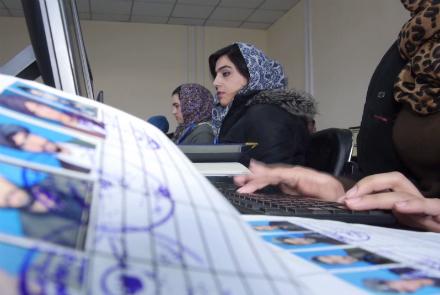The Afghan government on Tuesday said it plans to start the roll out process of the electronic identity cards (e-NIC) by next week, in a move that will bring an end to years of delay that has overshadowed the much-awaited process.
The president who will get his e-NIC next week will officially start the roll out process of electronic identity cards, the media office of the presidential palace (ARG) said on Tuesday - despite some MPs being opposed to the inclusion of nationality and ethnicity in the cards.
“The government has taken all necessary arrangements to roll out electronic identity cards, it is expected that the process will be launched by next week, we don’t see any problem in this respect, the legal issues around the process have been resolved in parliament,” said Jawed Faisal.
Meanwhile, officials at Afghanistan Civil Registration Authority (ACCRA) and e-NIC department have said that all necessary arrangements for rolling out the process have been taken and that they will soon decide on the center where the president will receive his e-NIC next week.
“There is a possibility that the honorable president visits one of our centers to receive his ID card like an ordinary citizen. There is the possibility that the ceremony is held at the presidential palace,” said Roeena Shahabi, head of the office of the ACCRA chief.
This new development takes place a week after a joint committee of Afghanistan’s parliament unanimously endorsed a number of amendments that had been put in place in the census law based on which the e-NIC will include nationality and ethnicity.
“The current law on the census had been approved three years ago and it has been endorsed by the president, it is the best strategy to rolling out electronic identity cards,” said one MP Fakoor Behishti.
The plan for e-NIC initially came under discussion during President Ashraf Ghani’s predecessor Hamid Karzai time. But the process hit constant deadlocks due to the controversy over the inclusion of nationality and ethnicity in the process.

